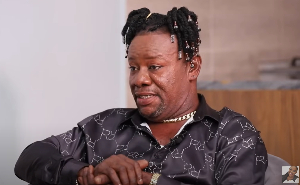Are we emotional beings or rational beings? Whilst some find it very offensive to be tagged as emotional; I can’t blame them for assuming that position because having the tag as rational is “cooler.”
Are we emotional or rational beings? If we are a combination as people think, which constituent is the majority? If the majority determine almost everything in this life, what we allow as a major part of us will determine our lives to a large extent.
Some people are ardent advocates for the “emotion” motion. Before you disagree, hear them out. Have there been times in your life when you felt it was over between you and an act but you repeated that act?
Why are you wearing what you are wearing today? Why did you say what you said or didn’t say? Why are you reading at this time? You could have chosen to read at another time or ignored this article all together right?
According to experts, there are five stages of change namely: pre-contemplation, contemplation, preparation, action, and maintenance phases.
Common across all these phases is emotion: the urge to do or not to do and logic: an assessment of pros and cons. However, this school of thought has argued that logic is another form of emotional reasoning but a good one.
The argument is that if you consider the pros and cons of issues before you make a decision, the act of pausing and reflecting is in itself an emotional decision because emotions are the drivers of our behaviours.
So do we do the things we do because we feel or think? It has been argued that concurring with the argument that we are emotional beings makes us passive thus, we become slaves to our biological makeup.
I am not too interested in whether we are emotional or rational beings. I’m very convinced that our emotions play a very crucial role in our lives and can determine the course of life. This conviction is from researches done and from my personal experiences and observations.
For example, addicts begin by having the power to choose between indulging or not in the addictive behaviour, and after a while that power is relinquished to their biology. They become slaves to biology. The brain gives them a signal (emotion) and they have no option than to succumb.
Emotions can determine the course of our lives because it affects the decisions we take. According to studies done, our emotions can affect the decisions and the quality of decisions we take.
For example, results of a study done to evaluate the effects of emotional state on decision-making time showed that sadness affects decision making by distorting thought content. And happiness reduces confusion as a result of “early information processing.”
Most of the behaviours we indulge in are purely emotional. We mostly talk about the negative ones but what about the positive ones?
It is said that the one who can control your emotions can control your life. The veracity of this maxim is undisputable since most of our behaviours are determined by our emotional states.
Emotions affect truth by magnifying reality. There is a great difference between truth and reality and this is usually controlled by our emotions.
I remember the story of a woman who had undergone a series of tests because of the complaints she kept making about her health to the doctors. All the tests came out as fine and she didn’t need any medication.
The doctors declared her fine but she disputed it. This is an example of the possibility of dissonance between truth and reality. In the simplest term, truth is objective but reality is subjective.
Sometimes what we feel creates a chasm between what could be (truth) and what is (reality). Because truth is ultimate, when we rely on emotions which determine our reality, we can end up becoming underachievers.
What is happening now may have little to do with what could happen. We’ve felt like giving up severally and I’m sure on those days we concluded (reality) we were failures; we didn’t consider the possibility of what could (truth) become of us.
A study in 2019 on emotions has revealed that we feel because we want to feel. The study also reported that emotions can be used as tools to get accomplish goals. This research brings to light the importance of emotions if used for our advantage.
“You feel because you want to feel.” Don’t become a biological slave. Your emotions can be your greatest assets.
Opinions of Friday, 24 July 2020
Columnist: Julius Mawuli Ziorklui



















